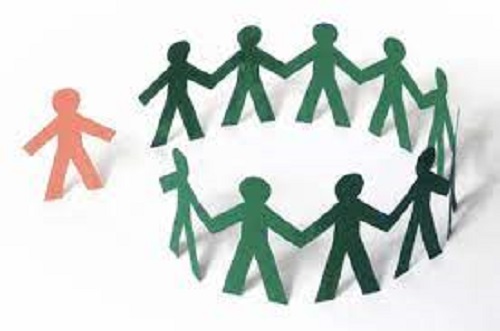Our Ghanaian society is made up of different people.
Every member of our society is uniquely valuable.
Is this the reality though? Does everyone in Ghana feel valued?
Why are some people valued or accepted more than others?
Imagine not feeling valued because of how you walk, talk, look or behave.
How will that make you feel?
People with special needs face a lot of challenges in our society because of their difficulties.
Society or community here refers to family, neighbours, friends, professionals, etc.
Our communities, therefore, have a role to play if people with special needs are to be seen and heard.
They need to be included and integrated into society.
It involves all people accessing and gaining equal opportunities in society.
This includes access to education, healthcare, recreation and religious events, among others.
Included
Being included, integrated means:
• The ability for individuals to access and be integrated into community settings such as the workplace. This needs to be encouraged in Ghana.
• Equipping yourself with knowledge about people with special needs to be able to support them at church, mosque, schools, playgrounds, lorry stations and the community at large. Knowledge is power.
• Focusing on strengths and not deficits of people with special needs.
• Seeking help for people with special needs by referring them to specialists such as speech and language therapists, neuro paediatricians, occupational therapists, physical therapists, etc.
• Allowing a person with special needs to be attended to first (e.g., when in a queue) because they may be hyperactive and their caregiver appears stressed and frustrated.
• Not passing insulting comments such as ‘gyimigyimi’, ‘bulubulu’, or ‘deaf and dumb’.
• The church, mosque etc. seeking support to create an inclusive environment in religious events.
• Being an advocate for people with special needs to raise awareness and prevent stigmatisation and discrimination.
• Learning how to make communication easy for people with special needs (if you know of one, e.g., signing, using alternative forms of communication, etc.).
• Empathising with families with children with special needs by show compassion.
Be mindful of what you say to them and the comments you make about them.
• Not walking away because a person with special needs got closer to you. Their condition is not contagious!
• Offering opportunities for children with special needs to interact and play with other children.
Intervention
Early intervention is key!
When children with special needs receive early intervention, they make good progress in their development.
Parents and children with special needs often feel isolated due to financial constraints and social misconceptions about their condition.
Let us create that inclusive environment for them to feel safe and loved because they are also valued members of our society!
The writer is Speech & Language Therapist/Clinical Tutor,
University of Ghana.
E-mail: jobamp@hotmail.com

